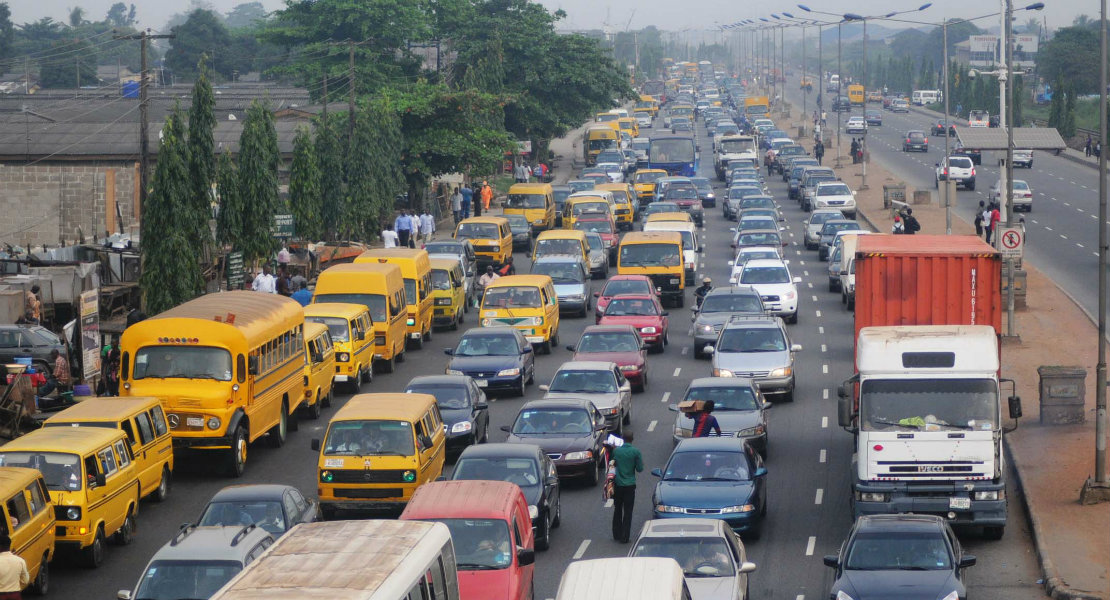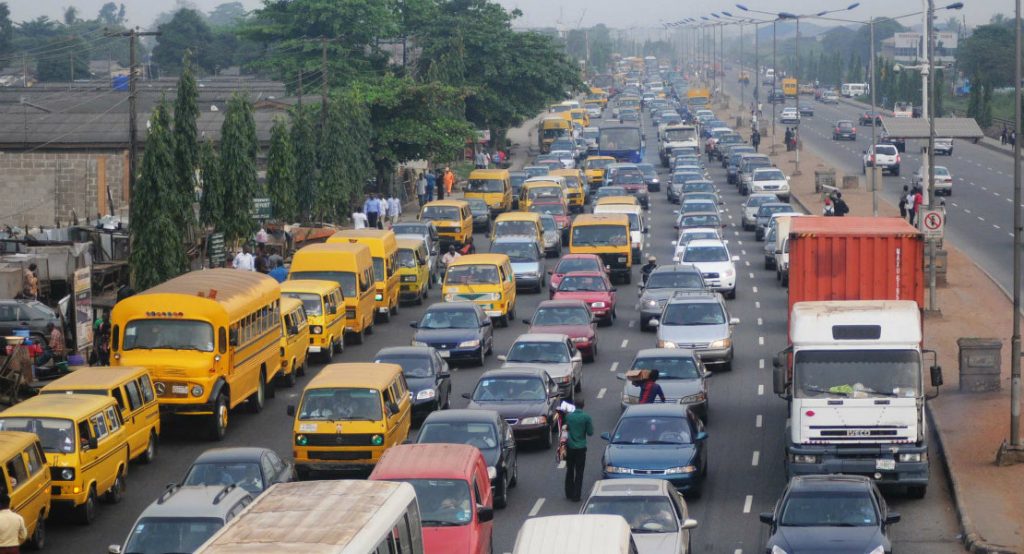The lines of aging blue, red and yellow trucks begin almost 6 miles (10 kilometers) from the gates of Nigeria’s main port of Apapa.

Out of 190 countries, Nigeria is one of the toughest to trade in
The problems at Apapa and other ports such as Calabar and Port Harcourt have been a headache for successive administrations, which have failed to fix decaying infrastructure, reduce stifling red tape and tackle corruption. Terminal operators, including APM Terminals, a unit of Denmark’s AP Moller-Maersk A/S, rely on generators because power cuts are so frequent.
But it’s worsened in recent years, especially at Apapa. Crumbling roads have all but ground trucks to a halt. Once they do manage to enter, drivers and businesses have to contend with a plethora of customs, immigration and security agents before they can pick up containers. It can take 20 days to clear products, compared with 48 hours in neighboring Benin and Ghana, according to the LCCI.
The cost of moving a container from Apapa to other parts of Lagos has soared to as much as 700,000 naira ($1,930) from about 150,000 naira two years ago as trucking firms put up their prices to make up for the delays, according to the Nigerian Shippers’ Council.

